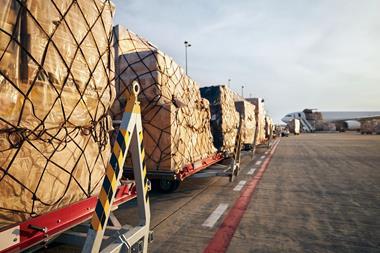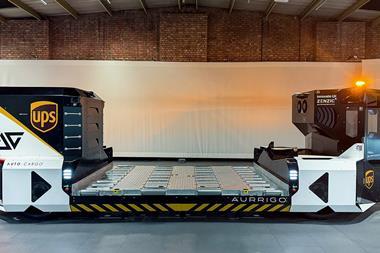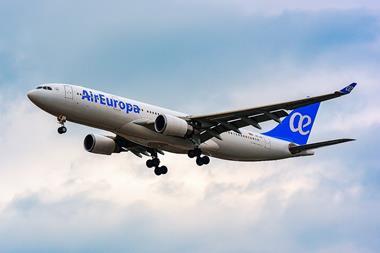Cost is the single biggest challenge for adoption of hydrogen and electric technology in both passenger and cargo aircraft.
This was the takeaway from the “Hydrogen and electrics: the great disruptive propulsion debate” webinar held by Air Cargo News' sister title FlightGlobal on June 9.
The panel taking part in the webinar agreed that current development of hydrogen and electric technology is promising in the race to decarbonise the aviation industry, but Nikhil Sachdeva, global lead for sustainable aviation at consultancy firm Roland Berger pointed out the “enormity of the challenge”.
He said adoption and commercialisation of hydrogen and electric technology comes down to cost. “Is it possible to make the sustainable transition in a cost-effective way?” he asked.
“For hydrogen we need electrolysis capability. With larger aircraft we will need to liquidise this hydrogen.”
Carbon Capture and Storage (CCS) will also be needed, Sachdeva said.
Hydrogen and electric could be compatible with sustainable fuels, but there needs to be more research into the impact of nitrogen oxides (NOx) emissions.
The aviation industry will need to find a way of paying for the technology, processes and infrastructure required, he stressed.
Josef Kallo, co-founder and chief executive of Germany-based hydrogen-electric aviation development firm H2FLY, highlighted the estimated costs involved.
Hydrogen development, storage and infrastructure will cost €300bn for the next 20 years, while Sustainable Aviation Fuel (SAF) will require €800bn for the same time period, he said.
Sachdeva said "government incentives and taxation" should be seriously considered to ensure money goes into the industry to fund hydrogen and electric technologies.
Michael Winter, senior fellow advanced technology at aerospace firm Pratt & Whitney, added that investing through public-private partnerships (PPPs) is the “way forward for safe, reliable and at scale propulsion”.
Andreas Aks, chief executive of Wideroe Zero, noted that the size of the aircraft that can be used currently does pose a constraint, while Michael Winter, senior fellow advanced technology at aerospace firm Pratt & Whitney, added that future aircraft design does need to accommodate hydrogen and electric development.
Aks pointed out more renewable energy is being produced to support hydrogen and electric development, but questioned whether these renewable markets will scale up fast enough to meet demand. Winter agreed that scaling up will take time.
Sachdeva also suggested that the focus could be on smaller airports rather than hubs to trial and further develop these technologies.
Kallo concluded that if high efficiency can be achieved throughout the value chain then the cost of hydrogen and electric technologies can be “competitive” rather than prohibitive.
https://www.aircargonews.net/policy/environment/air-cargo-stakeholders-back-worlds-first-commercial-scale-saf-production-facility/
https://www.aircargonews.net/policy/environment/uk-plans-for-batteries-and-hydrogen-to-enable-zero-emissions-airfreight/
https://www.aircargonews.net/policy/environment/air-new-zealand-tackles-emissions/
https://www.aircargonews.net/policy/environment/zero-emission-hydrogen-bid-for-united/















